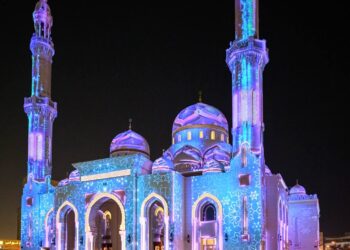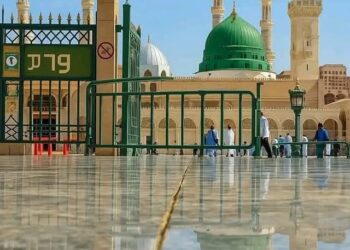
By Ibrahim Kegbegbe
In the heart of Lagos, where the Atlantic wind sweeps through the low-rise blocks of Jakande Housing Estate in Eti-Osa, the echoes of divine wisdom once reverberated through narrow alleyways and humble mosques. The air that now hums with the rhythm of urban hustle once carried the voices of four luminous scholars—Sheikh Sa’adullahi Arikewuyo, Sheikh Ibrahim Hassan Kegbegbe, Sheikh Yunus Temitope, and Sheikh AbdulMumin Mutolib Oniwasi.
They are no more. But their memory is etched into the conscience of communities that once sat at their feet—not trembling in fear, but in awe of their spiritual insight.
These were not merely clerics; they were living philosophies. Walking Qur’ans. Men who wore simplicity as a crown and whose words carved rivers of understanding into the hearts of both young and old. Their departure from this transient world has created a void no sermon can fill and no khutbah can patch.
Sheikh Sa’adullahi Arikewuyo, foremost among the departed, was the embodiment of Qur’anic melody. His voice, like the call of Bilal ibn Rabah, awakened the soul at dawn. His intellect pierced beyond surface exegesis; he reminded us that Islam is not found merely in rituals but in how we treat others—especially in adversity. His wisdom comforted orphans and cautioned kings.
Then there was Sheikh Ibrahim Hassan Kegbegbe, a name synonymous with scholarship and unwavering opposition to moral decay. A lion on the minbar yet gentle with seekers of truth, he believed knowledge was not to be hoarded but shared—like a torch passed from hand to hand until every corner is lit. His weekly halaqah drew both the elite and the downtrodden, who all left equally dignified in the sight of God.
Sheikh Yunus Temitope, the third among them, was a spiritual physician. Where others judged, he listened. Where others condemned, he corrected with compassion. In the echoes of his sermons, one could hear the Prophetic heart beating. His life’s silent jihad was guiding youth away from modern distractions and into deeper moral awareness. It is the kind of leadership Lagos longs for today.
And the fourth of this noble quartet, Sheikh AbdulMumin Mutolib Oniwasi, was a scholar who bent language to heal hearts. A rare fusion of reason and revelation, he challenged minds while elevating souls, making fiqh relevant to the everyday realities of Eti-Osa. He was a bridge between generations, a rare fragrance in an age increasingly allergic to spiritual scent.
READ ALSO:Family Announces Fidau Prayers for Late Sheikh AbdulMumin Oniwasi in Ilorin and Lagos
The question now is: Who remembers them?
When we gather to build new mosques with domes that shine but hearts that decay, do we remember that these men built lives, not just structures? When Islamic identity is reduced to slogans and trends, where are the disciples of Arikewuyo, the protégés of Kegbegbe, the students of Temitope, and the inheritors of Oniwasi?
Their janazahs may have been simple, but their legacies are monumental. These were men who transformed not just Jakande, but entire communities across Eti-Osa, Ibeju-Lekki, Epe, and beyond—turning ordinary estates into spiritual citadels.
It is a wound on our collective conscience that such stars were allowed to fade without a constellation of gratitude drawn in their name. No public archive. No annual lecture series. No commemorative books. Not even a plaque on the mosque walls they kept alive with their breath and sweat.
Let this piece serve not as a eulogy but as a revival—a call to remember what truly matters. Let it stir in us a yearning for depth over display, substance over spectacle, sincerity over performance. Let the youth of Jakande and beyond remember that greatness once walked their streets—not in convoys, but in humility; not with microphones, but with meaning.
READ ALSO:Islamic Unity at Risk: Why Sheikh Habibullah and Sheikh Onikijipa Must Reconcile Now
May Allah envelope the souls of Sheikh Sa’adullahi Arikewuyo, Sheikh Ibrahim Hassan Kegbegbe, Sheikh Yunus Temitope, and Sheikh AbdulMumin Mutolib Oniwasi in His eternal mercy.
And may we not be a generation that forgets its pillars—until the roof collapses.
















